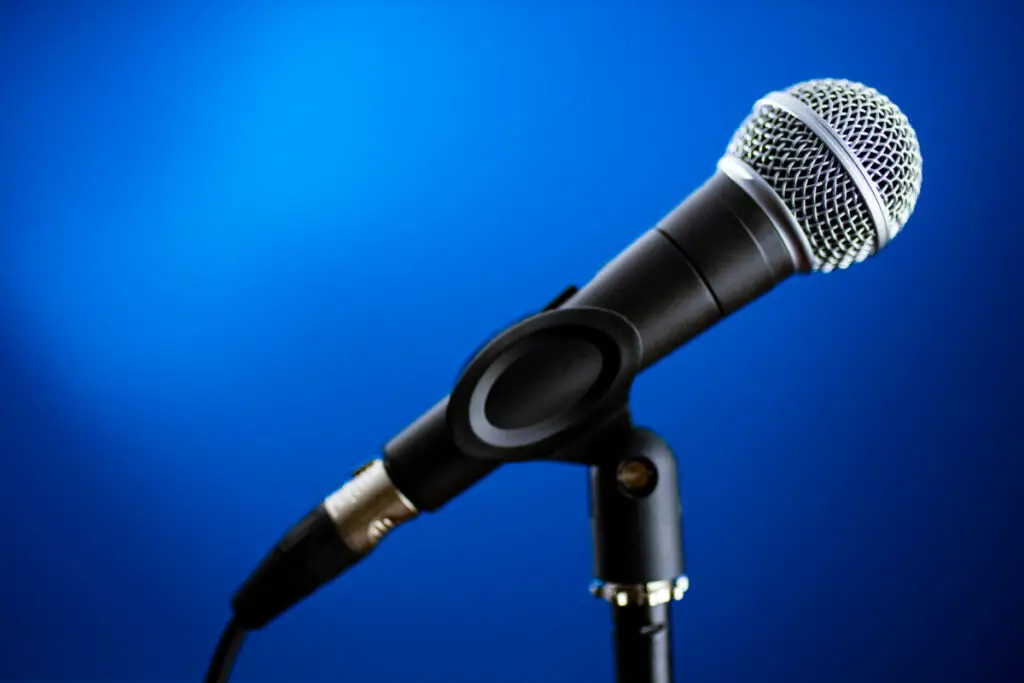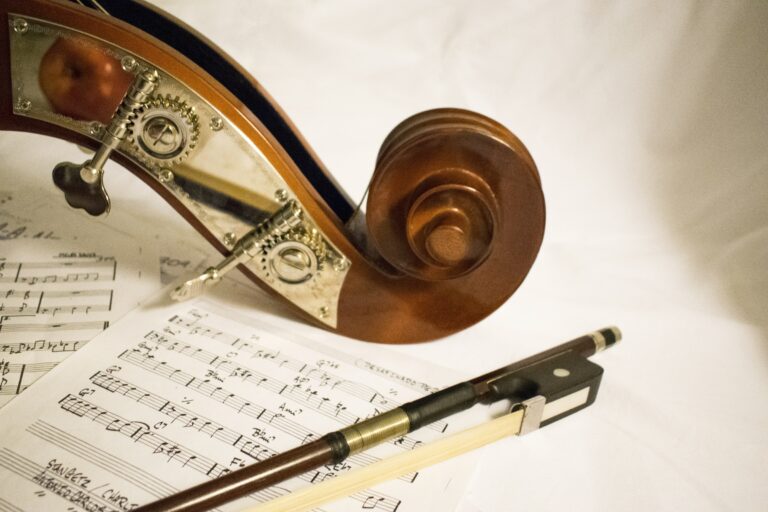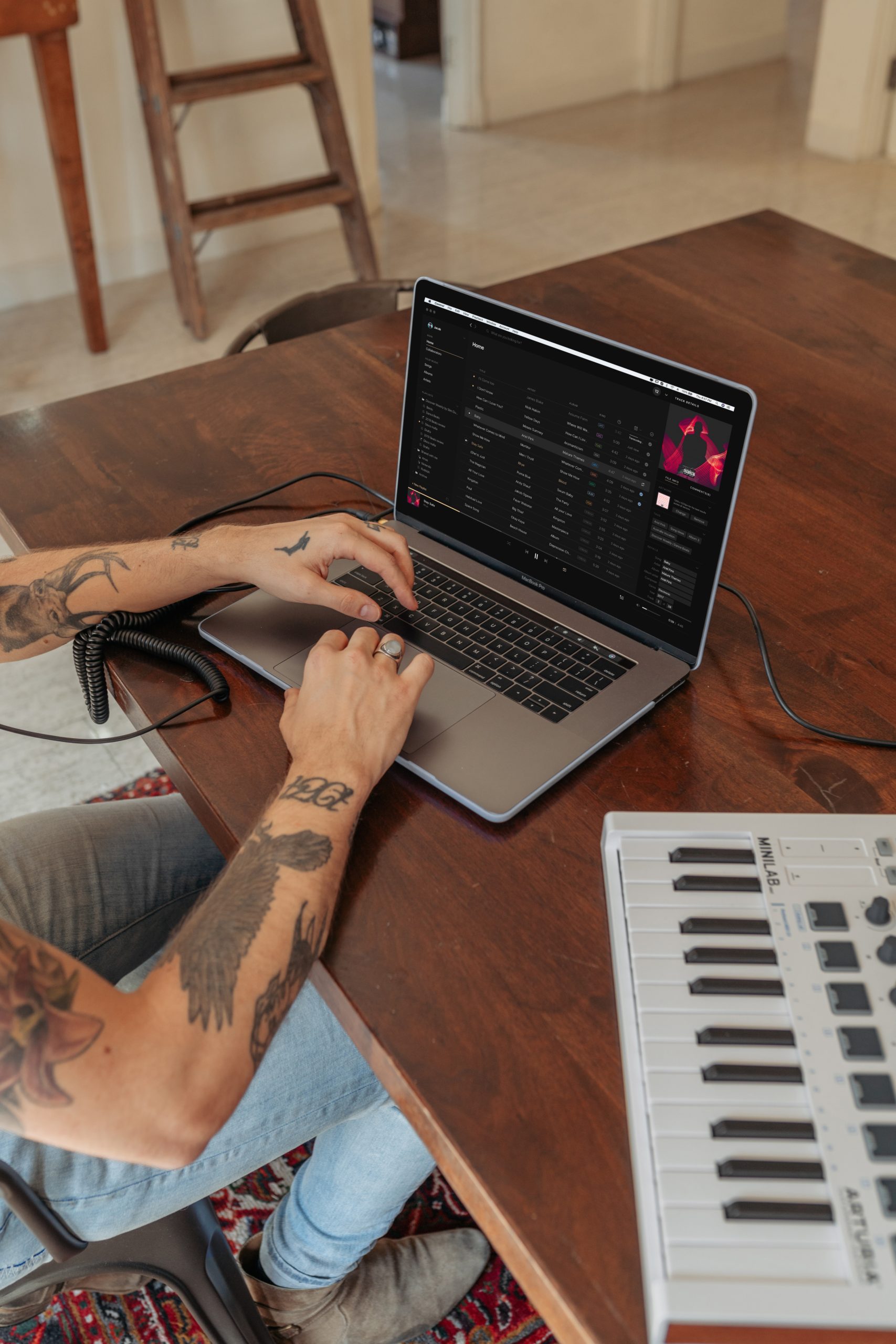Mic Buzzing Fix: Causes and Solutions You Should Know
There’s nothing worse than trying to lay down new sounds with an infernal buzz coming from your main mic. But how do you find out where the buzz is coming from?
Short answer: you can start by minimizing interference from other devices, eliminating any background noises, and ensuring all cables are working and connected properly.
Hearing that slight buzz can be a nightmare, especially if it doesn’t go away after trying to fix it. This article has a list of potential issues and how to fix them. So, let’s get into it and learn how to fix a buzzing mic.
What can cause a mic to buzz? Four common reasons
There are many potential reasons why your mic could be buzzing. Some of these could be beyond your control, others within it.
It’s a case of identifying the root cause and using that to find a way to alleviate the problem. That way, you can then fix the problem at hand. So what could cause this dilemma?
1. Background noise
There’s always a good chance of additional background noises near where you are recording. Unless you are in a soundproof studio, a mic will pick up any additional noises that might happen nearby.
It could be traffic, voices, or other devices, but each item creates additional sound. An active microphone will pick up these sounds, which will clash with how the mic is set up to record closer items.
2. External Remote Devices
Another outside source that will cause a possible buzz is using other wireless devices. Devices that use radio waves to connect wirelessly, such as Bluetooth, have the potential to clash with microphones that are designed to pick up sound waves.
As the two different wave formats clash, it can result in a buzz generated as a mic is still reacting to the radio wave frequencies generated by whatever active devices might be nearby
3. Improper cable connections
Regarding your setup, one thing that needs to be checked is that all cables are working properly and are correctly connected.
If a cable is not connected properly to a jack socket, it will not have a proper connection for recording sound. This generates feedback that reverberates into the microphone, causing a low drone to constantly occur.
4. Type of microphone
It also is worth considering the type of microphone you are using as well. Condenser microphones are much more prone to picking up other noises. These noises may clash with the electrical coil inside with this reaction generating a low buzz.
It’s a common issue with condenser microphones which may not happen using other mic types, such as a dynamic microphone. Consider this when working out how to fix your problem.
Five ways to fix your buzzing mic
Plenty of different tactics to try when fixing your mic buzzing issues. Even if one method might not work, it doesn’t mean that another mic buzzing fix isn’t going to fail either. So what are the solutions that you can try?
1. Remove any external wireless devices
The first thing you ought to do is remove any wireless devices away from the recording setup. Even taking away smartphones and tablets might be necessary to stop the buzzing.
Any devices that are required to be there should have any unnecessary wireless features switched off to check if this is causing the interference or not.
If you need to operate any devices, try using them in “Airplane Mode” to ensure minimal risk of interference and the buzz returning.
2. Alter voltage on devices
Sometimes, you will find that the power might affect the buzz. If using a condenser microphone, it can be sensitive to the current itself.
condenser microphone must be running on a D/C voltage setting. If there is an A/C current nearby, this may cause a buzz.
Removing or switching off all A/C devices will reduce the potential interference from excess power and cause the buzzing to stop.
3. Eliminate background noise interference
A great mic buzzing fix is to find ways to stop any potential outside noises from disrupting the microphone itself. This can be done in several different ways:
- Adding a pop filter. A surefire way to stop noise from affecting the microphone is by using a pop filter to protect the inner components. Acting as an additional noise barrier, it stops noises from reaching the microphone diaphragm, causing interference from outside sound waves.
- Use a noise gate. Noise gates are built specifically to detect unwanted background sounds. By adjusting them to what your specific needs are, they will focus on the input going into the microphone. It will also filter out any other sounds that might also be picked up by the mic eliminating the buzz.
- Soundproof vulnerable areas. As well as protecting the mic itself, think about your surroundings. Try to patch up any walls, windows, or openings that might let noise in. You can use thick padded items like blankets to muffle some sounds or install acoustic panels to help deflect external sound away from the recording area.
Trying some of these tactics will help decrease the risk of background noise ruining your recording session and eliminate the potential buzz.
4. Check the input connections
When checking the setup itself, you must ensure everything is connected properly. This goes for no matter if you are using USB ports or direct jack connections.
If you are using a USB connection, make sure that the USB is clean and devoid of any debris or grit. It can be worth giving it a small wipe beforehand to ensure it is clean. If that fails, try inserting it into a different USB port to see if that resolves the issue.
If you are using a jack, make sure all leads are connected properly and are secure in the port. You can wipe the leads to ensure the connection is good and see if it stops the buzz.
5. Altering input sound levels
When checking the sound input, it is worth checking the levels on the recording platform to check that excess volume isn’t causing the buzz.
If you are using a Windows platform, you can monitor these levels by following these steps:
- Open up Windows Sound Recording
- Select the “Windows + I” command, and this brings up the System menu in the top left corner
- Click on the Sound option and select the Input option within the Device Properties Tab
- Select the Additional Properties Box and click on the Levels Tab
- On the Microphone and Microphone Boost dials, reduce the volume and test the setup
- If the buzz continues, reduce the Microphone Boost levels to zero to get the greatest chance of reducing the buzz
If this doesn’t work, you can try resetting the system back to default and altering them again to see if that helps reduce the buzz.
6. Replace the mic filter
When protecting the microphone, you can also check how effective the default mic filter might be.
You can check the filter and see if the foam linings work properly. If the linings look damaged or worn, it may let additional sounds in through the body. Try replacing or reinsulating the filter to see if this fixes the issue.
Tips for stopping a mic buzz
As annoying as a mic buzz can be, it can be prevented. Even taking just a few precautionary steps can help reduce this issue popping up even when the mic is sitting idle. So what can you do?
Reduce loose cords
One of the biggest causes of a mic buzz is often cables getting knocked, causing a faulty connection to develop. With that in mind, it’s wise to reduce the number of loose cords that might be dangling within your mic setup.
If the cables are in use and the power is on, a disruption in the current flow can lead to a buzz developing, particularly if passers-by constantly knock it. Make sure that you tie all loose tables together as it gives them greater stability than if left loose individually. Furthermore, ensure that your recording setup has all cords tucked away to reduce the risk of any cords being knocked.
Soundproof your recording area
Always ensure the area you want to record is soundproofed to the best of your abilities. The presence of any unwanted background noise will be picked up by a mic, particularly if you are recording in more open surroundings.
Therefore, look for ways to stop excess noise from creeping into your setup. This can be done in several ways. You can install acoustic panels to deflect sound waves and place padded materials on walls and windows to prevent noise from creeping in. Placing all these controls will dramatically reduce outside noise from interrupting your recording process.
FAQ
Will my computer cause my mic to buzz?
Not normally – the most common causes of a mic buzz are either power interference or background noise. Whatever platform your mic is connected to is designed to work and pick up any sounds recorded into it. As the mic is the input device, the computer won’t cause the mic to buzz.
Does a mic buzz vary depending on the microphone type?
Yes – the type of microphone used may increase the chances of a buzz. For example, condenser microphones are designed to convert sound waves using electromagnetic components within the diaphragm. This makes it much more vulnerable to sound fluctuations than a dynamic microphone.
Can faulty connections cause a mic to buzz?
Yes – it can. One of the most common causes of a buzz developing is because the mic cords are not properly inserted into the platform recording the audio. Re-connecting the connections is a guaranteed mic buzzing fix and is one of the simplest ways to resolve the issue.
Conclusion
In the end, there are plenty of ways to find a successful mic buzz fix solution. Often enough, the mic buzz is caused by an extremely simple reason. It just may take some time to work out just what is causing it. The presence of remote devices, excessive background noise, or faulty components can all contribute to a mic buzz developing.
Thankfully, these issues are fairly simple to resolve without too much technical knowledge. Soundproofing your recording area and removing any devices that might interfere with the platform are easy enough solutions to your problem. Checking all the recording settings and the microphone setup also helps eliminate a buzz should it develop. No matter what method you look to try, there are plenty of potential mic buzzing fix options that you can use to solve your issues immediately.



![How to Remix a Song Legally [Copyright Considerations]](https://www.bythebarricade.com/wp-content/uploads/2023/04/150254623_l-1024x576-1-768x432.jpg)





